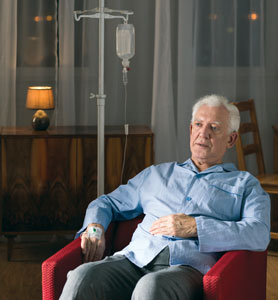
Regulators’ push to send more frail elderly people home to receive care received a ringing non-endorsement from University of Chicago researchers recently.
Investigators found that elderly, dual-eligible Medicaid beneficiaries in long-term care settings aren’t more likely to be hospitalized than those receiving community-based care. They found this result, even though long-term care residents tend to be older and have more chronic conditions.
Care intensity and duration are more likely to suffer at the hands of untrained caregivers in non-facility settings, the researchers found. Among people with dementia, home- and community-based service users had higher rates of hospitalizations than nursing home residents.
Study findings are viewed as evidence that Medicaid’s shift toward community-based services — at the sacrifice of skilled nursing providers — may actually be detrimental to patients.
“Home environments might not be safe or appropriately designed to accommodate needs, home care workers may face challenges implementing high-intensity treatments in the home environment, and informal caregivers might not be well trained to handle clinical issues,” said lead author Rebecca Gorges, a Ph.D. candidate in the Harris School of Public Policy. “Furthermore, they shift some of the care burden from trained, paid staff to largely untrained family members or friends, who must fill the critical gaps in care intensity.”
In 1996, only 19% of Medicaid long-term care expenditures were for HCBS, with the remaining 81% for nursing facilities, but by 2016, 57% went to HCBS.
Full study results were published in July’s issue of Health Affairs.
From the August 2019 Issue of McKnight's Long-Term Care News




